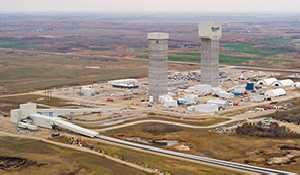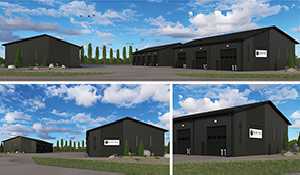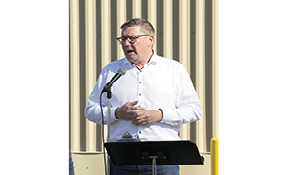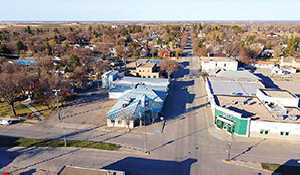Feds to impose carbon tax, give funds to individuals
January 23, 2018, 2:20 am
Kevin Weedmark
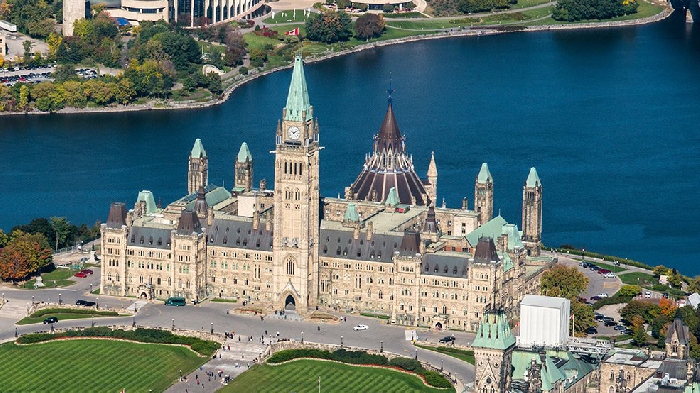

Bonk says proposal would harm Sask economy
The federal government came up with a new policy on its carbon tax last week, saying that if Saskatchewan and other provinces don’t come up with their own form of a carbon tax, the federal government will impose a carbon tax on them and redistribute the proceeds to individuals, with the feds giving provinces until March 31 to have a plan in place.
Ottawa has promised that revenue from a federal backstop carbon price will go back to the provinces it comes from. But a draft legislative proposal released Monday indicates that the money could go either to the provinces like Saskatchewan that don’t have their own carbon tax, or to individuals.
This isn’t the first time the federal government has suggested it could distribute carbon tax revenue to individuals, but the first time the proposal has been included in draft legislation.
“We’re evaluating how best to return the revenue—for example, by giving it directly back to individuals and businesses in the province,” Environment Minister Catherine McKenna told reporters last May.
The federal carbon tax will apply to those provinces that don’t have their own. Quebec, Ontario, Alberta and British Columbia already have carbon prices in place. Manitoba has announced it will levy a $25-per-tonne carbon tax this year, while Nova Scotia is planning for a cap-and-trade system.
But Saskatchewan Premier Brad Wall said he will take the federal government to court if it tries to impose a carbon tax.
Environment and Climate Change Canada estimate that the federal backstop would generate $260 million in revenue from Saskatchewan if applied in 2018, rising to $1.3 billion in 2022 (more than $1,000 per resident). A document from Environment and Climate Change Canada, dated April 2017, estimates that total revenue from the federal carbon tax would equal nearly $3 billion in 2022, if it were applied to all six provinces that don’t yet have their own.
The government also released new details Monday about how it intends to price pollution from industrial emitters. According to a regulatory framework, major facilities in sectors like oil and gas, mining, and food processing will pay a carbon price only if they emit above a certain threshold—an attempt to preserve their competitiveness.
“This approach thus minimizes the risk that businesses could move from Canada to jurisdictions that do not price carbon,” the framework says.
But Conservative environment critic Ed Fast said the framework shows the government is listening to big emitters, but is doing little to protect small- and medium-sized businesses.
“They’ll be facing very similar challenges to some of the big emitters. It’s just that their size isn’t significant enough to the point where the federal government is prepared to go to bat for them,” he said. “We have a government in the United States that is very much focused on reducing the tax burden on business, that’s very much focused on reducing energy costs. In Canada we’re going the opposite direction.”
Moosomin MLA and Minister of the Economy Steven Bonk said the provincial government still plans to challenge the feds in court, and he doesn’t believe the federal government will be able to impose a carbon tax on Saskatchewan.
He said the reasoning behind the carbon tax, and the latest government announcement that it will give the taxes raised to individuals, doesn't make any sense to him.
“For one thing we just don’t understand the whole concept behind this,” he said. “Carbon tax has been proven to not reduce emissions and if you’re going to just turn around and give the money back, what is the point in the first place? And we already have a made-in-Saskatchewan plan that will seriously address the problems of climate change, boost our technological sector, agricultural sector and not involve a tax, so that is a position of our government. We are willing to take this matter to court if we have to.”
Bonk said the provincial government is looking at the draft legislation released Monday.
“Our justice officials are reviewing the draft federal legislation right now and we're not even sure they can impose a tax on the province of Saskatchewan, that is step number one. Further to that we have a made in Saskatchewan climate change program which we know will reduce emissions while not hurting the economy, so that is what we are focused on in the moment.”
Bonk doesn’t expect the outcome of the Saskatchewan Party Leadership race to affect the province’s stance.
“Any common sense person knows that a federally imposed carbon tax on the province of Saskatchewan doesn’t make sense,” he said. “I can’t speak for the leadership candidates, but I can’t see any of the them changing their position.”
Bonk said the province has made its position clear to the federal government.
“We’re in constant communication with the federal government and on this issue we just simply disagree and the federal government asked each province to put together a climate change plan. We have done so. We think we have a great plan. Like I said, it will reduce emissions without hurting our economy and it is actually a results-oriented plan opposed to a flat carbon tax. We’re confident in our position and we’re willing to take the federal government to court over this.”
Does Bonk think the dispute will actually end up in court?
“So far, the federal government does not have legislation in place at all regarding their climate change plan, so we will see what happens. We are definitely prepared to go if we have to.
“It (the carbon tax) would definitely hurt our economy,” he said. “It would take over two billion dollars out of our economy every year. That is something that hasn’t happened yet and we feel quite strongly about our proposition, and we will keep fighting for the people of the province.”
The proposed output-based standards would apply to facilities that emit more than 50,000 tonnes of carbon dioxide annually. Within each industrial sector, the government will come up with a national average of emissions intensity. Facilities that emit less than 30 per cent below the national average will receive a credit from the federal government. All those above that threshold will pay the federal carbon price on emissions that exceed the threshold.
Erin Flanagan, director of federal policy with the Pembina Institute, said the approach is similar to the system in place in Alberta. “There’ll be questions over the next year about where exactly the rates are set and what’s the magic number,” she said. “But from a principles perspective, I think they’re getting a lot of it right.”
Patrick McDonald, director of climate and innovation with the Canadian Association of Petroleum Producers, said output-based standards can help protect trade-exposed industries like oil and gas, but added that many details of the federal plan have yet to be worked out. “Implementation of these must be done in a manner that has full consideration of competitiveness,” he said.
Ottawa has given the provinces until the end of March to decide if they want the federal backstop rather than their own carbon prices. All provinces have until September to release the details of their own carbon pricing plans, and the federal carbon tax will be imposed on any outliers by Jan. 1, 2019.
The draft legislative proposals are open for comment until Feb. 12, while the framework for industrial emitters is open for comment until April 9.



























